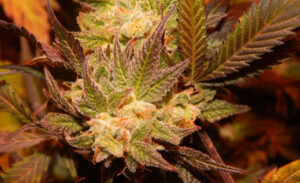Anxiety is a common emotion. Everyone feels anxious now and again: before a big test, facing a tough problem at work, or before making a big decision. However, anxiety disorders are not the same thing as just experiencing the emotion of anxiety. If someone has an anxiety disorder, the fear, worry, and stress they feel is so excessive, constant, and uncontrollable that it can interfere with that person’s ability to live.
There are several kinds of anxiety disorders, including panic disorder, social anxiety disorder, and generalized anxiety disorder. The various expressions are differentiated by their triggers, although many share the same symptoms. Typical symptoms can include constant or near-constant feelings of panic, fear, and uneasiness; difficulties sleeping; cold, sweaty, numb, or tingling extremities; shortness of breath; heart palpitations; an inability to remain still and calm; dry mouth; nausea; muscle tension; and dizziness.
Over the last few decades, advancements in mental healthcare have made available a variety of treatment options for anxiety, and quality care regimens tend to use a combination of therapies for the effective treatment of most disorders. These therapies can include psychotherapy, cognitive-behavioral therapy, relaxation therapy, diet and lifestyle changes, and, of course, medication. Antidepressants, particularly SSRIs, certain anticonvulsants, and low-dose antipsychotics are all commonly prescribed for anxiety. Benzodiazepines such as Xanax, Valium, and Ativan are now prescribed less than in earlier times, because of the high possibility for abuse, debilitating side effects, and the painful withdrawal periods of these drugs. Despite these considerable drawbacks, and efforts to curb overprescribing, benzo regimens are still ubiquitous in the treatment and management of anxiety disorders. It is also necessary to note that the precise mechanisms by which these pharmaceutical compounds work to ameliorate symptoms of anxiety are not clear, because the exact biological cause of anxiety has not been determined.
Nonetheless, the world’s leading neurochemical researchers have recently made considerable strides in untangling the mysteries of anxiety and other mood disorders. Scientists have identified the amygdalae, a pair of roughly almond-shaped masses of grey matter inside each cerebral hemisphere that regulate emotions, as playing a key role in anxiety disorders. 5-HT (5-hydroxytryptamine) is the chemical designation for the neurotransmitter serotonin. Its role in anxiety and mood disorders cannot be understated. The 5-HT1A receptor is a subtype of the 5-HT (serotonin) receptors, and the most common kind, present in high densities in the cerebral cortex, hippocampus, and amygdala. Activation of the 5-HT1A receptors decreases blood pressure and heart rate, lowers body temperature, effects decreased aggression or an increase in calm behavior, increases sociability, inhibits addictive behavior, and facilitates sexual behavior and arousal.
The recent national push for readily available medicinal and legal cannabis, as well as an overall societal pushback against the prescription mindset (“Generation Rx”) has led to a greater interest in investigating alternative therapies for anxiety disorders. One of the most encouraging compounds being researched is cannabidiol (CBD), a non-psychoactive cannabinoid and the second most common cannabinoid present in cannabis after THC. Cannabidiol has shown immense promise as an antidepressant-like and anxiolytic-like compound. CBD has been shown in peer-reviewed studies to inhibit the degradation of anandamide, the cannabinoid that naturally occurs within humans. Cannabidiol treatments effected a marked increase in serum anandamide levels, which in turn were associated with significant clinical improvement for psychiatric patients. Other peer-reviewed journal studies have shown excellent interaction between CBD and the 5-HT1A neuro-receptor, and its immunostabilizing effects seem to be perfectly attenuated to combat the overly sensitive fight-or-flight responses exhibited by sufferers of anxiety disorders.
CBD can be consumed in as many ways as cannabis itself can be consumed. High-CBD strains can be smoked in pieces or rolled into joints, CBD edibles have been made, and CBD tinctures, cartridges, and sublingual sprays are all available in a variety of strengths, flavors, and varieties. The ratios of CBD:THC vary from 1:1 and 4:1 (psychoactive), to 8:1, 22:1, and 25:1 (non-psychoactive). Whether a patient is seeking a comfortable high that also soothes their anxiety, or to remain fully cognizant and go about their normal business with no psychoactive effects at all, there are CBD products available that will help them.
Users of CBD have described its effects as calming, relaxing, and providing a general sense of wellness. Although CBD is definitely not psychoactive, it does provide a component of mood alteration that can only be described as delightful. Some users compare the feeling to a very gentle body high or mild euphoria, however this author likes to describe CBD as “the zen molecule” for the calm, collected, and peaceful mood it brings. As one might imagine, this feeling of peaceful acceptance is exactly what a sufferer of anxiety would need. CBD can work to counteract the constant feelings of fear, panic, and stress that anxiety causes. By stabilizing neurotransmitter levels and increasing the body’s own supply of cannabinoids, CBD provides a range of health benefits that aren’t just helpful for the treatment of anxiety, but which are certainly suited perfectly to it. As a daily supplement, and a more concentrated treatment for severe attacks, CBD provides a simple and effective method of medication, with no negative side effects and no LD50. Sufferers of anxiety disorders should absolutely check out the wide variety of CBD products The Higher Path has available, for they are sure to find something that will help them.
SOURCES:
(1) 5-HT1A receptor agonists relieve depression and anxiety. Great! What are they?
(2) Cannabidiol, a Cannabis sativa constituent, as an anxiolytic drug.
(3) Antidepressant-like and anxiolytic-like effects of cannabidiol: a chemical compound of Cannabis sativa.
(4) Neural basis of anxiolytic effects of cannabidiol (CBD) in generalized social anxiety disorder: a preliminary report.
(5) Anxiety & Panic Disorders Health Center
(6) Drugs to Treat Mental Illness
(7) The Link Between Depression and Other Mental Illnesses
(8) A Visual Guide to Generalized Anxiety Disorder
(9) Neurobiology of anxiety disorders and implications for treatment.
DISCLAIMER: The information on this site is not intended or implied to be a substitute for professional medical advice, diagnosis or treatment. All content, including text, graphics, images and information, contained on or available through this web site is for general information purposes only. Always consult a doctor before making any health changes, especially any changes related to a specific diagnosis or condition.




